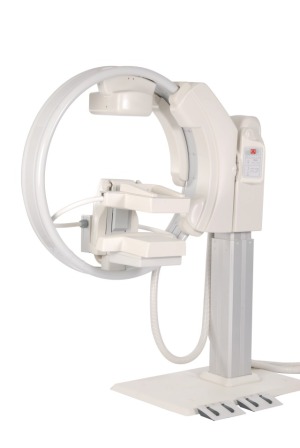by
Lauren Dubinsky, Senior Reporter | August 17, 2015
Molecular breast imaging (MBI) as a secondary screening tool for women with dense breasts is more cost-effective than screening with mammography alone, according to a new Mayo Clinic study. The industry is searching for ways to improve cancer detection in dense breasts and research like this may hold the answer.
"In the past, the market has struggled to meet the needs of the 45 percent of women with dense breast tissue," Philip Croxford, president and CEO of Gamma Medica Inc., told HCB News. "This study reinforces that MBI technology is a highly effective tool for secondary breast cancer screening."
The study found that supplementing MBI with mammography leads to a four-fold increase in detection rates and reduces costs by about 15 percent. The MBI technology used for the study was Gamma Medica’s LumaGEM, which received FDA approval in 2011.



Ad Statistics
Times Displayed: 2650
Times Visited: 17 Fast-moving cardiac structures have a big impact on imaging. Fujifilm’s SCENARIA View premium performance CT brings solutions to address motion in Coronary CTA while delivering unique dose saving and workflow increasing benefits.
During an MBI procedure, a radioactive tracer is injected into the patient through a vein in their arm. The cancer cells take up the tracers more than normal cells do, so a nuclear medicine camera is then used to scan the breast for areas where the tracer is concentrated.
Mammography, tomosynthesis and ultrasound are anatomical imaging tests, but MBI is a functional imaging modality. Because of that, it highlights the metabolic activity in the breast, despite tissue density.
The most reliable way to manage breast cancer is through early detection, but standard mammography and 3-D tomosynthesis don’t possess the clarity and accuracy to detect cancer in the early stages. MRI has the same sensitivity and improved specificity as MBI, but it costs three times as much.
About one in eight women will develop invasive breast cancer over the course of their lifetime, according to breastcancer.org. It's more difficult to spot cancer in the 45 percent of women who have dense breast tissue.
Breast density notification laws have been enacted in 24 states, which require physicians to notify women who have dense breast tissue. The intention is to inform the women so they can decide, along with their physicians, if they want to get further testing.
The results of the study were published in the
American Journal of Roentgenology.

